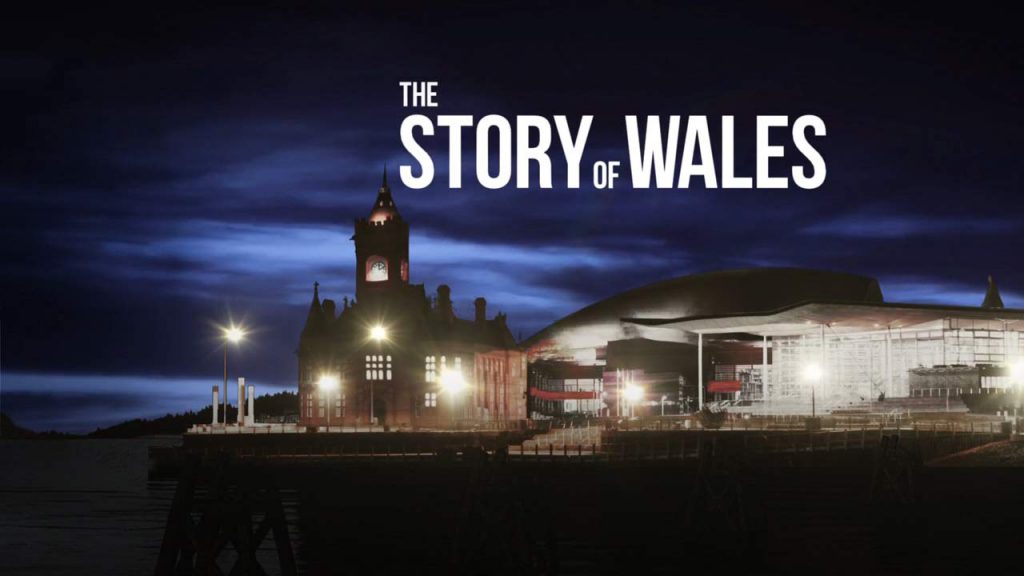The Story of Wales episode 4: The Industrial Revolution turns Wales into a global player, bringing unimaginable wealth – and desperate poverty. From Parys Mountain on Anglesey to Copperopolis, Swansea, in the south, the copper trade transforms the landscape and economy. Iron does the same for Merthyr Tydfil, making it a world-class centre of technology. This brave new Wales fuels massive social turmoil, riots and uprisings – and leads to the first national demands for democracy and workers’ rights.
Huw Edwards presents this history of Wales, showing the country in ways it’s never been seen before. From prehistoric times, to power struggles with the barons, and England, through to the industrial revolution and today this history is comprehensive and is a compulsive viewing.
The Story of Wales episode 4
Wales is a country that is part of the United Kingdom. It is bordered by England to the east, the Irish Sea to the north and west, the Celtic Sea to the south west and the Bristol Channel to the south. It had a population in 2021 of 3,107,500 and has a total area of 20,779 km2 (8,023 sq mi). Wales has over 1,680 miles (2,700 km) of coastline and is largely mountainous with its higher peaks in the north and central areas, including Snowdon (Yr Wyddfa), its highest summit. The country lies within the north temperate zone and has a changeable, maritime climate. The capital and largest city is Cardiff.
Welsh national identity emerged among the Celtic Britons after the Roman withdrawal from Britain in the 5th century, and Wales is regarded as one of the modern Celtic nations. The conquest of Wales by Edward I of England was completed by 1283, though Owain Glyndŵr rebelled against English rule in the early 15th century and briefly re-established an independent Welsh principality. The whole of Wales was annexed by England and incorporated within the English legal system under the Laws in Wales Acts 1535 and 1542.
Distinctive Welsh politics developed in the 19th century. Welsh Liberalism, exemplified in the early 20th century by David Lloyd George, was displaced by the growth of socialism and the Labour Party. Welsh national feeling grew over the century; a nationalist party, Plaid Cymru was formed in 1925, and the Welsh Language Society in 1962. Established under the Government of Wales Act 1998, the Senedd (the Welsh Parliament, formerly known as the National Assembly for Wales) is responsible for a range of devolved policy matters.




